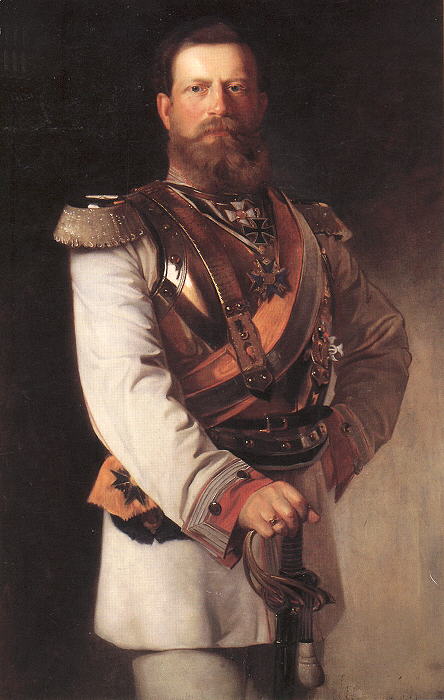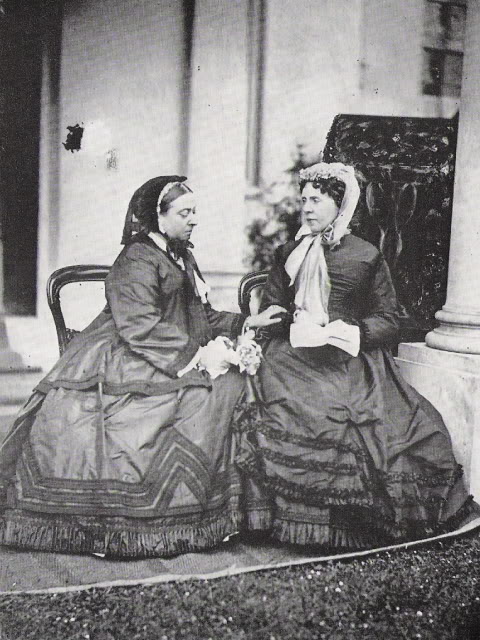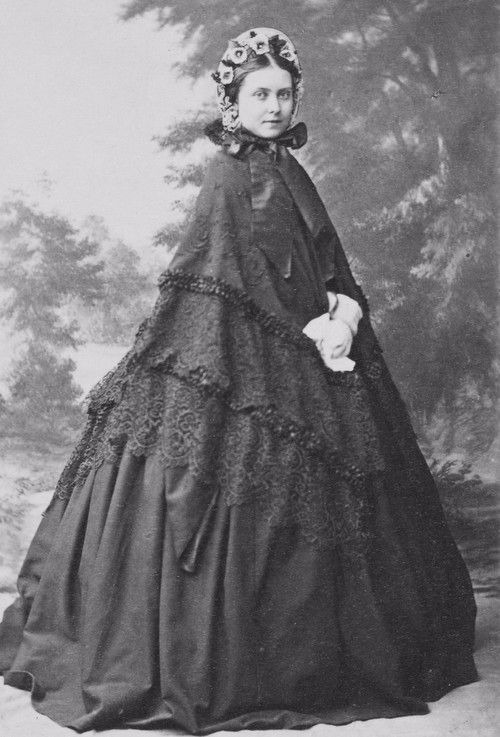
Princess Augusta of Saxe-Weimar-Eisenach (1811 – 1890) was the Queen of Prussia and the first German empress as the consort of William I, German Emperor. She was the daughter of Charles Frederick, Grand Duke of Saxe-Weimar-Eisenach and grand -daughter of Tsar Paul I of Russia. 

Augusta married Prince Wilhelm in 1829. She was fourteen years his junior. At the time, he was third in line to the throne. His old brother was then Crown Prince. 

Augusta was very interested in politics and more liberal minded than her husband. In 1850, he and Augusta took up residence in Koblenz, where Wilhelm was appointed Governor General. She welcomed the move from Berlin and could set up her own court. 

She became Queen consort in 1861. Augusta despised Bismarck's foreign policy and the feeling was mutual. She only reconciled with him in 1871 after the establishment of the Empire. She saw him as an able guide for her grandson. 

Augusta became Empress in 1871. As one abhorring war, she founded the National Women's Association in 1864, which looked after wounded, the German Society of Surgery and the Augusta Fund at the International Committee of the Red Cross in 1890, which still exists today. 

She had two children who would go on to become
Frederick III, German Emperor and Louise, Grand Duchess of Baden.

Frederick III, German Emperor and Louise, Grand Duchess of Baden.


Her son would go on to marry Victoria, Princess Royal of the United Kingdom. Augusta also became estranged from her daughter-in-law, Victoria who, contrary to custom, inherited the former Queen Elisabeth's jewels, which were supposed to be left to Augusta. 



• • •
Missing some Tweet in this thread? You can try to
force a refresh





